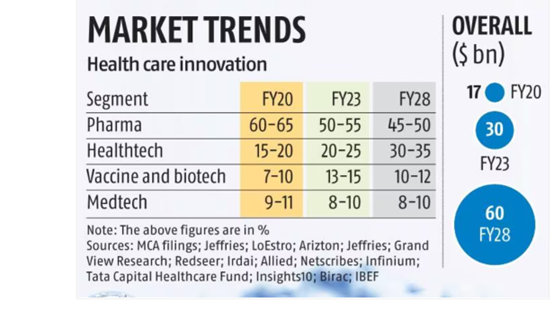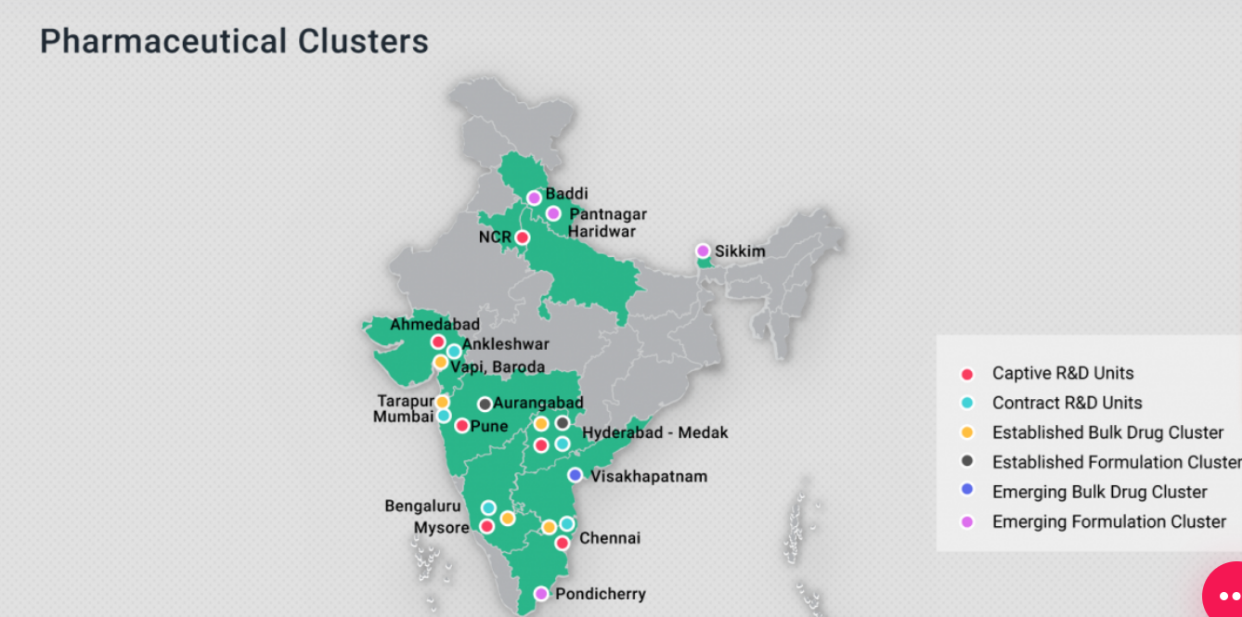
What is Seasonal Employment?
07/05/2024
What is Talent Mapping? Definition, Benefits, Challenges
11/05/2024It’s 2024, and Indian Pharmaceuticals today has risen and positioned itself as one of the major contributors to the Global pharmaceutical industry. The Indian Pharmaceutical Industry is projected to grow at a CAGR of over 10% to reach $130 billion by 2030 and hit a whopping $450 billion by 2047. The Indian pharmaceutical Industry has undergone a remarkable transformation and is powering through with healthcare advancements worldwide.
Some of the major segments of the Indian Pharmaceutical Industry include generic drugs, bulk drugs, vaccines, contract research & manufacturing, biosimilars, and biologics.
Current Statistics of Indian Pharmaceutical Advancements
The COVID-19 pandemic put the Indian pharmaceutical industry in the spotlight as our country supplied medicines to over 133 countries in the fight against the pandemic. But that is just the tip of the iceberg of what India has achieved over the last few years in the Pharma Industry.
A global leader in vaccine production
India’s vaccines and biotech sector, valued at $4 billion in 2023, contributes 15% to the healthcare innovation market. Source: The Economic Times
- India is one of the biggest suppliers of low-cost vaccines in the world, contributing to 60% of global vaccine production.
- 70% of the WHO demand for Diphtheria, Tetanus and Pertussis (DPT) and Bacillus Calmette–Guérin (BCG) vaccines, and 90% of the WHO demand for the measles vaccine.
Source: Invest India
Largest provider of Generic medicines
- India manufactures and supplies about 60,000 generic brand medicines across 60 therapeutic categories, accounting for 20% of the global supply of generic medicines.
- We are known to provide the most affordable HIV treatments to patients.
Source: Invest India
The low price and high-quality medicines produced by India not only make it one of the most preferred worldwide but have also earned a reputed name called “pharmacy of the world.”

Growth Drivers of the Indian Pharmaceutical Industry
1. Government Support
The Indian government has introduced PLI schemes under which there will be an increased production of expensive, maximum-value products, the generation of about 100,000 jobs in the sector, and a consistent supply of bulk API (Active Pharmaceutical Ingredients), ensuring India’s drug security.
Investment Outlay supporting the manufacturing of medicines
- PLI for Bulk Drugs (INR 6,940 Cr)
- PLI for Pharmaceuticals manufacturing (INR 15,000 Cr)
2. Low-cost medicines are causing an influx of patients
Not just low-cost but excellent quality medicines, as compared to the US, Europe, and South Africa, have given rise to medical tourism.
3. Highly developed infrastructure
The highest number of US-FDA compliant Pharma plants outside of the USA supports the functioning of about 3000 pharma companies.
4. High capabilities in drug manufacturing
Largest manufacturers of low-cost generic medicines with the infrastructure and capability of carrying out end-to-end manufacturing.
5. Rising consumerization of healthcare
Patients are less and less patient when it comes to waiting for healthcare; tech companies are digitalizing the patient journey.
6. Reconfigured healthcare value globally
Healthcare facilities are rapidly moving towards meeting patients’ changing needs, improving quality, safety, and achieving better outcomes.
Investment Opportunities in Pharmaceuticals
Major investments in the Indian pharmaceutical industry have spread across many states. Several projects with big chunks of investments have already been planned and are ready to go.
Source: Invest India

Changes in the Supply chain management
With globalization, technological advancements, and rising healthcare product demand, the pharmaceutical supply chain of India has drastically transformed.
What is the Importance of Supply Chain Diversification?
Post the pandemic, there has been a greater focus on diversifying the supply chain by investing in multiple locations, including India. Companies are moving away from the overreliance on China, as it has been identified as a threat in the long run.
Some of the key focus areas to enhance the pharmaceutical efforts are-
- Automation and digitization
- Producing top-notch quality and building credibility
- Adoption of sustainable practices
Adoption of AI technology
- Data traceability throughout the pharmaceutical supply chain will act as a cornerstone of supply chain strategy.
- Analysing data by leveraging artificial intelligence will help meet the rising market demand and cut through the possibility of disruptions.
Integrating AI efficiently into supply chain operations will prove to be a competitive advantage for companies.
Navigating the roadblocks
1. Regulatory compliance
India is an extremely diverse country with different states presenting different compliances. Unfortunately for the supply chain industry, this is one of the biggest challenges they need to navigate with caution. By ensuring compliance with requirements, companies can operate a lot more efficiently.
2. Infrastructure insufficiency
While there has been progress in the infrastructure sector in the past few years, it still isn’t enough. India is constantly struggling with.
- inadequate transportation
- poor road connectivity
- Limited cold chain facilities
- Issues related to counterfeit drugs, expiry, and pilferage
- Backward logistics infrastructure is hampering the movement of goods and services.
The right investments can fuel sustainability and growth
Investment in technology-enabled logistics facilities can help turn this around and ensure ambitious standards of drug storage and handling. For example,
- Optimizing the size of the packages can help reduce costs on storage and shipping and promote sustainability.
- Deployment of advanced refrigeration systems and GPS tracking can help maintain ideal conditions during the entire transportation.
- Digitalization, use of global standards, and implementation of robust tracking systems can increase end-to-end supply chain visibility.
Closing Words
On the whole, the pharmaceutical and healthcare sector in India harbours vast opportunities for expansion, especially in innovation, research, early detection, and cutting-edge solutions such as robotics-assisted surgery. By focusing their energy on these strengths, embracing technological progress, and promoting collaboration, the Indian pharmaceutical industry can persist in its game-changing role in shaping the trajectory of healthcare provision, both at home and on the global front.
Contact Us For Business Enquiry

Rajkumar Shanmugam
Rajkumar Shanmugam is the Head of HR at ALP Consulting, bringing over 19 years of comprehensive HR leadership experience across India and international markets. His expertise spans talent acquisition, employee relations, performance management, compliance, and HR transformation. Rajkumar has a proven track record of driving people-centric initiatives, enhancing workplace culture, and aligning HR strategy with business goals. With extensive experience in US staffing operations and global mobility, he continues to lead organizational excellence through innovation and employee engagement.




